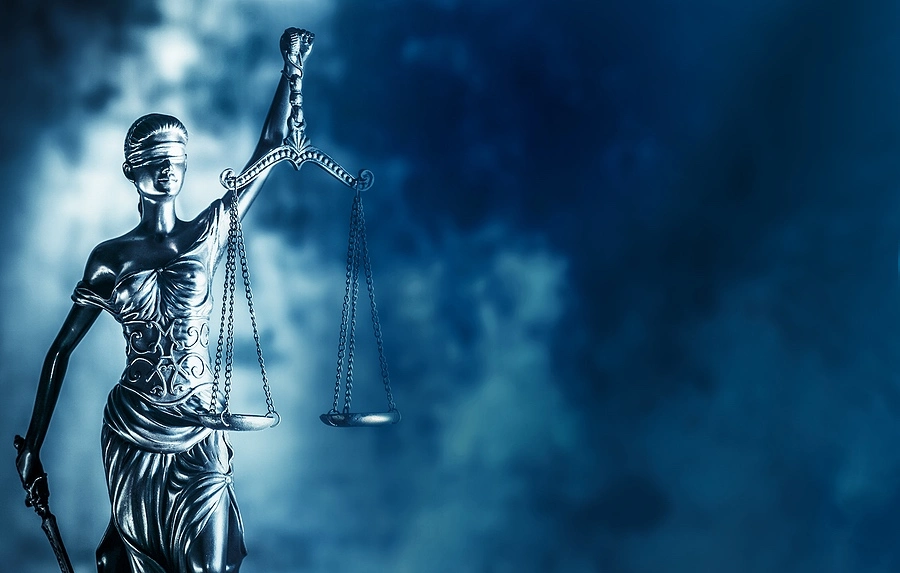A car accident can leave you with a cascade of problems: physical pain, emotional distress, and mounting financial burdens. Understanding the types of damages you can recover is crucial for rebuilding your life after a crash. If you’ve been injured in a car accident in St. Louis due to someone else’s negligence, The Dixon Injury Firm is here to fight for your right to fair compensation.
Recovering from a Car Accident: What You May Be Entitled To
Missouri law allows injured car accident victims to pursue various types of damages to compensate them for their losses. We’ll meticulously assess the full extent of your injuries and the impact they’ve had on your life to ensure you seek maximum compensation.
Types of Damages You Can Pursue: A personal injury lawsuit can help victims seek compensation for both economic and non-economic damages resulting from car accidents.
- Economic Damages: These cover your financial losses, such as:
- Medical expenses (past and future)
- Lost wages (past and future)
- Property damage (vehicle repairs or replacement)
- Other out-of-pocket expenses directly related to the accident
- Non-Economic Damages: These address the intangible losses caused by the accident, such as:
- Pain and suffering (physical and emotional)
- Emotional distress
- Loss of enjoyment of life
- Disfigurement or scarring
- Punitive Damages: In rare cases, if the other driver’s actions were particularly reckless or malicious, you may be able to pursue punitive damages, which are intended to punish the wrongdoer and deter similar behavior.
Missouri Law and Your Right to Compensation
Missouri law, including principles of negligence and the state’s comparative fault system (Missouri Revised Statutes § 510.190), will play a crucial role in determining the amount of compensation you can recover.
The Dixon Injury Firm: Fighting for Your Financial Recovery
We have a proven track record of recovering significant settlements and verdicts for car accident victims in St. Louis. We’ll handle all the legal complexities of your case, allowing you to focus on your physical and emotional recovery. Personal injury lawsuits can be a crucial part of this process, helping victims recover from the physical, financial, and emotional impacts of their injuries. We’ll investigate the accident, gather evidence,
negotiate with the insurance company, and, if necessary, take your case to trial to secure the full compensation you deserve.
Economic Damages in Car Accidents

When a car accident occurs, the immediate concern often revolves around tangible financial losses, known as economic damages. These damages refer to compensation for quantifiable financial losses supported by documentation. They encompass various aspects, including:
- medical bills
- lost wages
- reduced earning capacity
- property damage
- out-of-pocket expenses
Economic damages are essential in ensuring that accident victims are not left bearing the financial burden of an incident they did not cause. Meticulously recording all expenses and losses allows victims to substantiate their claims and seek full reimbursement.
The following sections break down each type of economic damage in detail, providing a comprehensive understanding of their significance in a personal injury claim.
Medical Bills
Medical expenses are often the most significant component of economic damages in car accident cases. These expenses cover a broad range of costs, including hospital stays, surgeries, ongoing medical treatment, physical therapy, and even future medical bills that may arise from the injuries sustained. Thorough documentation of all medical expenses is crucial, as it serves as critical evidence for economic losses in claims.
The total of medical expenses significantly contributes to the overall economic damages claimed by the victim. From emergency room visits to long-term rehabilitation, every medical bill must be accounted for to ensure accurate compensation.
Insurance companies often scrutinize these claims, so accident victims must have all their medical records, receipts, and relevant documentation ready to support their insurance company personal injury case.
Lost Wages
Another critical aspect of economic damages is the compensation for lost wages. Lost wages refer to the income and benefits that accident victims miss out on due to their inability to work following the incident. This compensation includes not just the lost income from the time off work, but also other financial benefits such as bonuses, overtime, and promotions that may have been impacted.
Calculating future income loss is equally important, as it assesses how much money will be lost from not working due to injury. This calculation considers various factors, including the victim’s age, occupation, and the severity of the injury.
Providing detailed pay stubs and employment records helps victims substantiate their claims for lost wages and recover compensation they deserve.
Reduced Earning Capacity
Reduced earning capacity is another significant component of economic damages. This type of compensation addresses the potential future income loss when injuries prevent the victim from returning to their previous employment or earning potential. If an injury leads to a permanent impairment, victims may claim a reduction in their earning capacity as part of their economic damages.
This consideration extends beyond immediate lost wages, encompassing the long-term financial repercussions of the injury on the victim’s career and livelihood.
Property Damage
Property damage claims are a vital part of economic damages, covering the costs for vehicle repairs or replacement after a car accident, as well as any personal property affected. These claims are generally resolved quickly, based on the repair costs or the fair market value of the vehicle at the time of the accident.
Accurate assessment and timely resolution of property damage claims ensure that accident victims are not left without transportation or burdened with repair costs they cannot afford.
Out-of-Pocket Expenses
Car accident victims often incur various out-of-pocket expenses, which can be recovered through insurance or a lawsuit. These expenses may include rental car costs, travel expenses for medical care, and household assistance. Keeping detailed records of these costs is essential, as they contribute to the overall economic damages claimed by the victim.
Out-of-pocket expenses can quickly add up, significantly impacting the victim’s financial stability. Documenting every expense and providing receipts enables accident victims to seek full reimbursement for their actual financial losses.
These expenses, though seemingly minor, play a critical role in ensuring that victims are not financially burdened by the aftermath of the accident.
Non-Economic Damages in Car Accidents

Non-economic damages refer to the intangible losses that do not have specific dollar amounts attached but significantly impact the victim’s life, especially when considering economic damages vs non economic damages. These damages can include:
- Emotional and psychological harm
- Pain and suffering
- Loss of consortium
- Reduced quality of life
Unlike economic damages, non-economic damages are challenging to quantify and are often assessed through subjective measures.
Non-economic damages, despite their intangible nature, play a crucial role in addressing the personal trauma and emotional impact endured by car accident victims. An experienced personal injury lawyer plays a key role in pursuing fair settlements for these damages, ensuring that victims’ emotional and psychological suffering is recognized and compensated.
Pain and Suffering
Pain and suffering encompass a wide range of issues, including chronic pain, disfigurement, nightmares, anxiety, depression, and overall discomfort resulting from the accident. Catastrophic injuries such as brain injuries, spinal cord injuries, nerve damage, amputations, broken bones, and severe burns often lead to significant pain and suffering.
Compensation for pain and suffering covers both the physical and emotional aspects of these injuries, recognizing the profound impact they have on the victim’s life. These damages are an essential part of non-economic losses, ensuring that victims seek compensation for the severe and often lifelong consequences of their injuries.
Emotional Distress
Emotional distress is a common aftermath of car accidents, often affecting the victim’s mental health and daily functioning. Conditions such as post-traumatic stress disorder (PTSD) and anxiety are frequently reported by individuals following traumatic car accidents. The emotional trauma can be as debilitating as physical injuries, significantly impacting the victim’s recovery and quality of life.
Compensation for emotional distress acknowledges the profound psychological impact of the accident. An experienced personal injury lawyer can help victims document their emotional trauma and pursue fair compensation for these non-economic damages.
Loss of Consortium
Loss of consortium refers to the loss of companionship and intimacy with a spouse due to accident-related injuries. This type of non-economic damage recognizes the impact that the victim’s injuries have on their relationships and the emotional support they can no longer provide to their loved ones.
Compensation for loss of consortium helps address the emotional and psychological toll on the victim’s family.
Reduced Quality of Life
Injuries from car accidents can lead to a reduced quality of life, manifesting in various ways. Victims may experience:
- Loss of the ability to enjoy hobbies and social activities they once loved
- Significant impacts on their overall well-being
- Emotional distress contributing to a diminished quality of life for the injured individual and their loved ones
This loss of enjoyment and the resulting emotional distress contribute to a diminished quality of life for the injured individual and their loved ones.
Loss of consortium claims may also arise from a spouse’s inability to provide emotional and physical support after an injury. Recognizing these impacts ensures that the profound changes in the victim’s life are addressed and compensated.
Punitive Damages: Holding Negligent Parties Accountable

Punitive damages are designed not only to compensate the victim but also to penalize the wrongdoer for serious misconduct. These damages serve as a deterrent, discouraging both the defendant and others from engaging in similar wrongful behavior in the future. In car accident cases, behaviors such as intentional conduct or gross negligence, like drunk driving, can lead to punitive damages.
Courts evaluate a defendant’s actions based on their intent and level of negligence when deciding on punitive damages. In some jurisdictions, punitive damages may reach up to four times the amount awarded in compensatory damages. Approximately 5% of court cases result in the awarding of punitive damages, highlighting their role in holding negligent parties accountable.
How Comparative Negligence Affects Your Claim

Comparative negligence rules in Missouri allow individuals to claim damages even if they are 99% responsible for an accident. This principle ensures that fault attributed to the victim reduces their compensatory damages proportionately, rather than barring recovery entirely. The percentage of fault assigned to each driver directly affects the compensation amount they can recover from injuries sustained in a car crash.
Insurance companies often assess fault levels to reduce their payout obligations, which can lead to injury victims being unfairly assigned higher percentages of fault. A personal injury attorney can assist with understanding how comparative negligence impacts the case and minimizing assigned fault.
Emotional trauma, such as post-traumatic stress disorder, can significantly disrupt a victim’s normal life and ability to drive.
Statute of Limitations for Filing a Car Accident Claim

In Missouri, individuals have five years from the date they become aware of an injury to file a personal injury claim. The statute of limitations aims to ensure that evidence remains credible and available. If the injured party is a minor, they can file a claim until five years after turning 21.
Exceptions to the five-year limit may apply if the defendant leaves Missouri or if the injured individual was unaware of their injury. Missing the deadline for filing a claim can result in the loss of the right to pursue compensation. Taking timely legal action is essential to secure the right to compensation after a car accident.
The Role of an Experienced Personal Injury Lawyer

Hiring a personal injury attorney often leads to higher compensation due to their negotiation skills. An experienced attorney can provide objective advice, helping clients make informed decisions during emotionally charged situations. They streamline the claims process by efficiently managing paperwork and legal procedures.
Many personal injury lawyers work on a contingency fee basis, meaning they only get paid if you win your case. This arrangement ensures that victims can pursue their claims without the burden of upfront legal fees, making legal representation accessible to all. Contact us today for a free consultation.
Frequently Asked Questions
What are economic damages in a car accident claim?
Economic damages in a car accident claim encompass tangible financial losses, including medical expenses, lost income, and property damage. These losses are measurable and directly related to the accident.
How are non-economic damages different from economic damages?
Non-economic damages are distinct from economic damages in that they encompass intangible losses, such as emotional distress and diminished quality of life, which are more challenging to quantify. In contrast, economic damages involve measurable financial losses, such as medical expenses and lost wages.
What role does a personal injury lawyer play in a car accident claim?
A personal injury lawyer plays a crucial role in navigating the legal process, negotiating with insurance companies, and ensuring that victims of car accidents receive fair compensation. Their expertise helps to protect your rights and maximize your claim’s potential.
What is the statute of limitations for filing a car accident claim in Missouri?
The statute of limitations for filing a car accident claim in Missouri is five years from the date you become aware of the injury. It is crucial to act within this timeframe to protect your legal rights.
Can I still claim damages if I was partially at fault for the accident?
Yes, you can claim damages even if you were partially at fault, but the compensation you receive will be proportionally reduced based on your level of fault.

